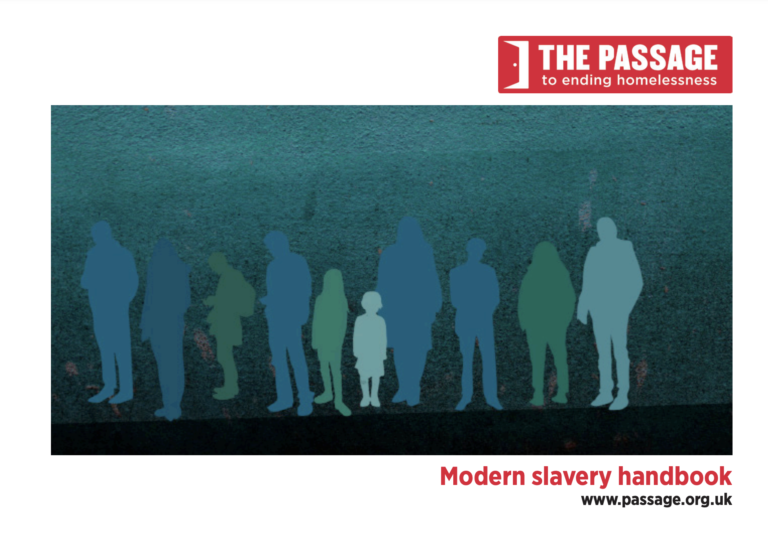Modern Slavery Handbook
We believe that everyone should read this handbook – and we have kept it small so that you can keep it in your work bag or desk drawer. This handbook was, however, specifically created for staff who work in the...
This handbook was specifically created for staff who work in the homelessness sector, particularly frontline workers, managers and volunteers. People who are engaged in support services for homeless people can be vital eyes and ears in detecting this crime. In addition, by identifying a survivor and engaging with First Responders, you are facilitating the person’s access to support, such as a recovery and reflection period of at least 45 days, safe accommodation and material assistance, legal advice, medical and psychological services, compensation and/or safe repatriation and return.
Use this handbook to understand the types of exploitation that homeless people are exposed to. By knowing what to look for, and how to get support, frontline workers can save lives.

We believe that everyone should read this handbook – and we have kept it small so that you can keep it in your work bag or desk drawer. This handbook was, however, specifically created for staff who work in the...
The forthcoming Modern Slavery Bill, announced in the 2022 Queen’s Speech, presents a significant opportunity for the UK Government to implement its outstanding commitments in relation to strengthening Transparency in Supply Chains (TISC) provisio...Read More
The objective of these non-binding ILO general principles and operational guidelines for fair recruitment (hereafter “principles and guidelines”) is to inform the current and future work of the ILO and of other organizations, national legislatur...Read More
The Royal Thai Government’s Social Security Office (SSO) has closely coordinated with employers throughout Thailand to survey and register sites and workers for COVID-19 vaccines. There are plans to offer AstraZeneca or Sinovac vaccines to migrant...Read More
In recent years, it has become increasingly apparent that there is a gap in the global understanding of how child sexual exploitation affects boys. While data on the prevalence of all child sexual exploitation is generally lacking, when data does ex...Read More